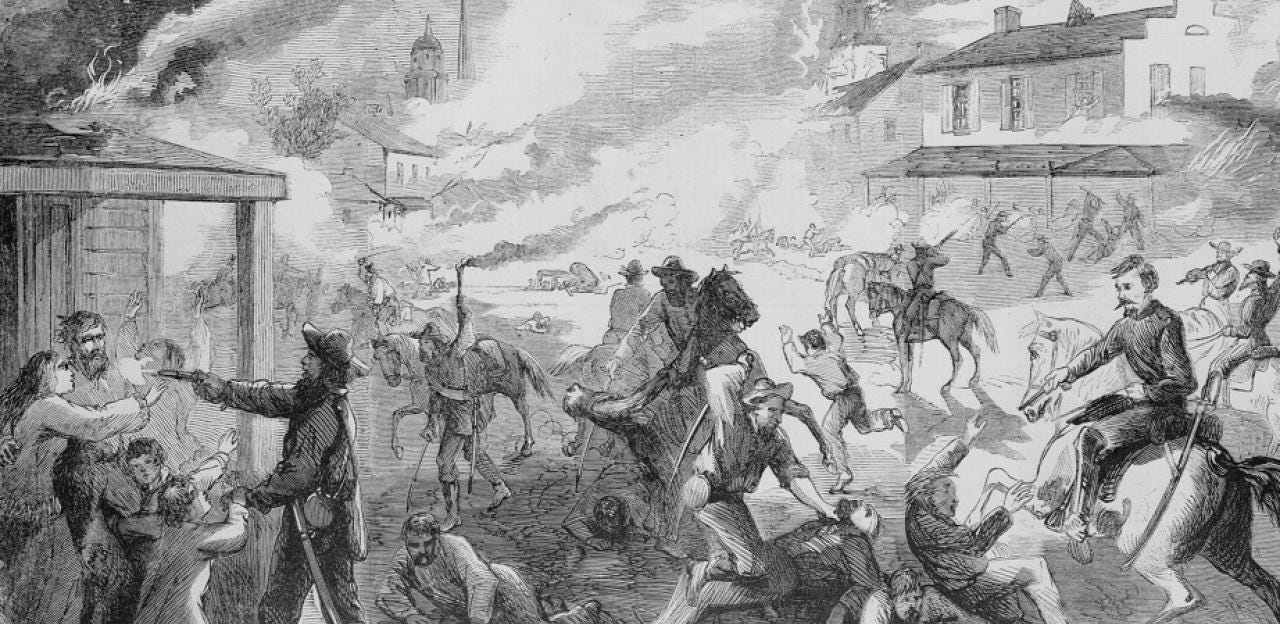Jessie Frémont petitions Lincoln for Emancipation
Lincoln was far slower to move on Emancipation than many of his allies would have liked—including political power couple Jessie Benton Frémont and John C. Frémont—legendary Pathfinder, first California senator, first presidential candidate of the newly formed Republican Party, and Union Major General.
Before and during the Civil War, Jessie successfully mustered literary and clerical forces in San Francisco (among them author Bret Harte and Reverend Thomas Starr King) to oppose and defeat powerful Southern political forces as they sought to turn California into a slave state.
When the Civil War began, Jessie left San Francisco to join John in his new posting as Commander of the Western Department. It was not going well for the Union.
Read After the Gold Rush from the beginning:
After the Gold Rush — Chapter 40
August 30, 1861: St. Louis, Missouri/Washington, D.C.
John & Jessie Frémont
As Commander of the Western Department, John Frémont was given the impossible task of safeguarding Missouri and all of the Northwest, with a force of just 23,000 men whose three-month enlistments were about to expire.
From Frémont’s post in Missouri, Jessie Frémont watched with helpless horror as the state descended into chaos.
Rebel guerillas wreaked havoc: cutting railroad cars, telegraph lines, burning bridges, raiding farms, and attacking Union posts. Thousands of Union loyalists were forced to take refuge, penniless, in Illinois, Iowa, and Kansas.
By August, Confederates controlled half of Missouri, and two Confederate armies were making plans to capture Springfield and invading Illinois to capture Cairo.
Frémont came under increasing pressure for decisive action. Seeing the chance to advance Emancipation in the form of war tactics, Jessie joined others of Frémont’s associates in urging her husband to free the slaves of known Confederate supporters.
“These men are in rebellion and no longer protected by the Constitution,” she argued. “It is legal to confiscate rebel property, including their ‘slaves.’”
On the morning of August 30, 1861, at dawn, without notifying President Lincoln, Frémont issued a proclamation putting Missouri under martial law. The edict declared that civilians taken in arms against would be subject to court martial and execution, that the property of those who aided secessionists would be confiscated, and that the slaves of all rebels were immediately emancipated.
The reaction in the border states was outrage and widespread panic. Kentucky was still ostensibly neutral, and Unionists there feared that any form of emancipation would sway opinion in the state toward secession.
One group in Louisville telegraphed the President: "There is not a day to lose in disavowing emancipation or Kentucky is gone over the mill dam."
Lincoln had been handling the border states with kid gloves and needed no reminder that Frémont's emancipation order could tip those states. He wired immediately, requesting that Frémont revise the order. Instead, Frémont sent Jessie to Washington to argue his case.
On arriving in the city, Jessie was summoned to the White House before she could even change her dress. Then she was made to wait for hours in an anteroom in her dusty clothes.
When she was finally admitted, she found the President cold and severe. He told her brusquely, “Major General Frémont should never have dragged the Negro into the war."
Jessie stood firm. “Mr. President, the Negro is the war.”
She argued. She pled. She cajoled. But every point she made was pointless. In the midst of one sentence, Lincoln interrupted her with a withering look. “You are quite the female politician.”
He did not mean it as a compliment. Long before she was shown the door, she had been dismissed.
She returned to Missouri— and the president publicly revoked the emancipation clause of Frémont’s proclamation on September 11.
But we tried, she told herself. At least we tried.
Now it was up to the president to do the right thing— in time.
She prayed that he knew what was the right thing.
Why subscribe?
After the Gold Rush is a reader-supported publication. To receive a monthly roundup of new posts and support this work, please consider becoming a free or paid subscriber.
Feedback, Comments, Likes and Shares are hugely helpful and much appreciated!





